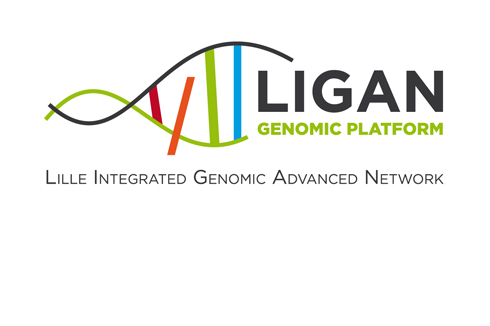Monogenic Diabetes – Genetics of primary pancreatic defects
Martine Vaxillaire, PharmD PhD, Research Director at Lille Pasteur Institute
Various monogenic forms of non-autoimmune diabetes may occur very early in live, in neonates (defined as neonatal diabetes mellitus [NDM], accounting for ~1:150 000 live births), in childhood or in young adulthood as for the dominantly inherited young-onset diabetes (called Maturity-Onset Diabetes of the Young [MODY], representing ~1-2% of all European diabetic cases). Since 1992, our laboratory has greatly contributed to the identification of rare (private) heterozygous mutations or chromosome rearrangements in several MODY genes (encoding transcription factors, the glucokinase enzyme, the precursor molecule of insulin or the K-ATP channel subunits), each having a crucial role in β-cell function. More recently, the discovery of three major causes of NDM (gain-of-function mutations in the K-ATP channel genes and coding or cis-acting preproinsulin mutations) even highlighted many pathogenic mechanisms of β-cell dysfunction. In each affected patient, only one mutation in one gene is causing diabetes (as a monogenic condition). However, a broad clinical spectrum may be associated to different single gene mutations and a continuum of phenotypes can be observed according to age at diagnosis. Modifier genetic, epigenetic or environmental factors may be involved in the apparent clinical variability.

Pancreatic /beta-/cell genes known as targets of monogenic diabetes
Elucidation of several monogenic diabetes forms brought remarkable breakthroughs in diabetes physiology, in improvement of patient care and quality of life and in estimating diabetes risk for asymptomatic relatives. The best example of emerging personalized genomic medicine is for patients having a K-ATP channel mutation, as they can be switched from insulin to an oral sulfonylurea with an optimum glycaemic control. Thus, knowing the genetic aetiology of diabetes is important in all young-age diabetic patients. However, in 30-to-50% of NDM and MODY patients, the diabetes cause is unexplained, suggesting that additional defects in critical β-cell pathways are yet to be discovered. Our current projects benefit from state-of-the-art new generation sequencing methods, that are implemented at the Lille LIGAN-PM platform, e.g. whole-exome sequencing applicable to families or isolated patients with severe or atypical diabetes, and shortly whole-genome sequencing. The functional impact of the identified mutations and the role of the mutated genes/proteins in insulin secretion pathways will be studied in human and murine cell lines and from animal models (mice, zebrafish).
Genetic susceptibility in diabetes :

One of the causes of monogenic diabetes: activating mutations in the K_ATP channel genes:

Current research grants :
Projet ERA-NET E-Rare (ERANET-09 RARE-005), EuroGeBeta (2010-2013); Programme EFSD/Lilly European Diabetes Research (2011-2012); Projet ANR-Blanc 2011, RFX-PancInt (2012-2014).
Five significants publications :
• Semplici F, Vaxillaire M, Fogarty S, Semache M, Bonnefond A, Fontés G, Philippe J, Meur G, Diraison F, Sessions RB, Rutter J, Poitout V, Froguel P, Rutter GA. Human mutation within Per-Arnt-Sim (PAS) domain-containing protein kinase (PASK) causes basal insulin hypersecretion. J Biol Chem 2011, 286(51):44005-14
• Bonnefond A, Durand E, Sand O, De Graeve F, Gallina S, Busiah K, Lobbens S, Simon A, Bellanné-Chantelot C, Létourneau L, Scharfmann R, Delplanque J, Sladek R, Polak M, Vaxillaire M, Froguel P. Molecular Diagnosis Of Neonatal Diabetes Mellitus Using Next-Generation Sequencing Of The Whole Exome. Plos One 2010, 5(10):E13630
• Bonnefond A, Froguel P, Vaxillaire M. The emerging genetics of type 2 diabetes. Trends Mol Med. 2010, 16(9):407-16
• Meur G, Simon A, Harun N, Virally M, Dechaume A, Bonnefond A, Fetita S, Tarasov AI, Guillausseau PJ, Boesgaard TW, Pedersen O, Hansen T, Polak M, Gautier JF, Froguel P, Rutter GA, Vaxillaire M. Insulin gene mutations resulting in a MODY phenotype: marked differences in clinical presentation, metabolic status and pathogenic effect through ER retention. Diabetes 2010, 59(3):653-61
• Babenko AP, Polak M, Cavé H, Busiah K, Czernichow P, Scharfmann R, Bryan J, Aguilar-Bryan L, Vaxillaire M, Froguel P. Activating Mutations in ABCC8 cause Neonatal Diabetes Mellitus. N Engl J Med 2006, 355:456-66



